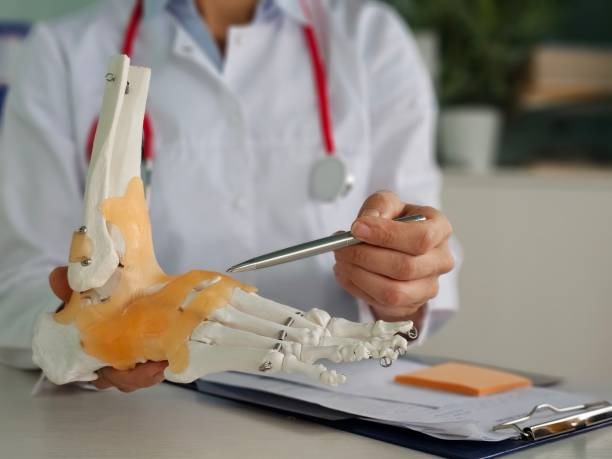Key Takeaways:
- Orthopedic spine surgeons specialize in diagnosing and treating spinal disorders.
- They employ both surgical and non-surgical methods to improve spinal health.
- Collaborative care with other health professionals enhances patient outcomes.
Table of Contents:
- Introduction
- The Expertise of Orthopedic Spine Surgeons
- Spinal Disorders and Conditions Treated
- Diagnostic Techniques Utilized by Spine Surgeons
- Surgical Interventions in Spinal Care
- Non-Surgical Treatments and Management
- Collaborative Approach to Spinal Health
- Conclusion
Introduction
The human spine is an engineering marvel, providing structural support and flexibility. However, given its complexity, the spine is susceptible to various disorders affecting a person’s life. Orthopedic spine surgeons play a pivotal role in maintaining and recovering spinal health. Their expertise in diagnosing and treating spinal conditions makes them essential in the journey towards spinal wellness. This article aims to shed light on the critical role of orthopedic spine surgeons in promoting spinal health, detailing the treatments and methodologies they use to ensure optimal spine function.
The Expertise of Orthopedic Spine Surgeons
Orthopedic spine surgeons are specialists who have undergone extensive training in the diagnosis and treatment of spinal disorders. Their education typically involves medical school, followed by a residency in orthopedic surgery and additional fellowship training specifically in spine surgery. This rigorous training equips them with the skills necessary to address complex spinal issues. Notable orthopedic spine surgeons like Dr. Gbolahan Okubadejo exemplify the depth of knowledge and dedication found in this field.
The comprehensive understanding of musculoskeletal anatomy allows these surgeons to pinpoint the root causes of spinal issues accurately. They are adept at handling a wide array of conditions, ranging from degenerative disc disease to traumatic spinal injuries. Their ability to blend technical skill with patient-centered care is instrumental in achieving successful outcomes.
Spinal Disorders and Conditions Treated
Orthopedic spine surgeons encounter a variety of spinal disorders, ranging from common conditions like herniated discs and sciatica to more complex diseases such as scoliosis and spinal stenosis. Each condition requires a personalized approach due to the unique nature of each patient’s disorder’s impact on their overall health.
In addition to degenerative diseases, these specialists often treat congenital anomalies and spinal deformities. Conditions such as kyphosis and spondylolisthesis are among those frequently managed by orthopedic spine surgeons. Their expertise extends to addressing spinal trauma and injuries resulting from accidents, while requiring surgical intervention to restore function and minimize pain.
Diagnostic Techniques Utilized by Spine Surgeons
Accurate diagnosis is the cornerstone of effective treatment. Orthopedic spine surgeons employ various diagnostic techniques to gather detailed information about a patient’s condition. Initial evaluation often includes a thorough medical history and physical examination to assess symptoms and identify potential areas of concern. Imaging studies, such as X-rays, MRIs, and CT scans, are critical in visualizing the internal structure of the spine and detecting abnormalities.
Electromyography (EMG) and nerve conduction studies may also be conducted to evaluate nerve function and diagnose nerve-related issues. These diagnostic tools enable spine surgeons to create a comprehensive treatment plan that addresses the underlying causes of pain and dysfunction, facilitating effective management of the condition.
Surgical Interventions in Spinal Care
When conservative treatments fail to alleviate spinal problems, surgical intervention may be necessary. Orthopedic spine surgeons are skilled in performing various surgical procedures tailored to the patient’s spine. Common surgeries include discectomy, laminectomy, and spinal fusion.
Minimally invasive techniques have revolutionized spinal surgery, offering benefits such as reduced recovery time and minimized scarring. These procedures involve smaller incisions and often result in less post-operative pain, allowing patients to resume their daily activities more rapidly. Orthopedic spine surgeons continually adapt to advancements in surgical technology, striving to improve patient outcomes through innovative approaches.
Non-Surgical Treatments and Management
Not all spinal conditions require surgery. Many patients benefit from non-surgical treatments that alleviate symptoms and improve mobility. Physical therapy is a cornerstone of non-surgical treatment, helping to strengthen the musculature around the spine and increase flexibility.
Other non-surgical options include medication for pain management, injection therapies to reduce inflammation, and lifestyle modifications such as weight management and ergonomic adjustments. Orthopedic spine surgeons often collaborate with physiotherapists and pain management specialists to provide comprehensive care focusing on the patient’s well-being.
Collaborative Approach to Spinal Health
The complexity of spinal health necessitates a collaborative approach to treatment. Orthopedic spine surgeons work closely with a multidisciplinary team of healthcare professionals to develop holistic care plans. This team often includes neurologists, physiotherapists, occupational therapists, and pain management specialists, each contributing their expertise to benefit the patient.
This collaborative effort extends beyond the operating room, ensuring patients receive continuous support throughout their recovery. By integrating diverse perspectives and skills, the team can address not only the condition’s physical aspects but also its emotional and functional impacts, promoting long-term spinal health and patient satisfaction.
Conclusion
Orthopedic spine surgeons are indispensable in the realm of spinal health, providing expert care for a multitude of conditions affecting the spine. Their ability to diagnose, treat, and manage spinal disorders is rooted in a deep understanding of anatomy and pathology. Through a combination of surgical and non-surgical techniques, they guide patients towards recovery, allowing individuals to regain functionality and improve their quality of life. As advancements in spinal care continue to evolve, orthopedic spine surgeons remain at the forefront, dedicated to enhancing the health and well-being of their patients. Their role transcends traditional medical boundaries, embodying a commitment to excellence in pursuing health.


